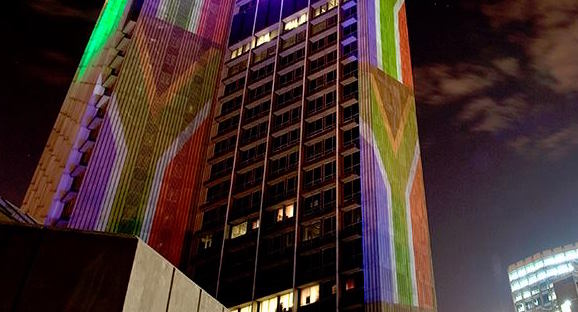The “technically insolvent” SABC wants to increase television licence fees as part of its turnaround strategy to help get the public broadcaster back on to a sustainable financial footing.
The SABC’s chief financial officer, Yolande van Biljon, told Parliament on Wednesday that a proposal to increase licence fees had been sent to communications minister, Stella Ndabeni-Abrahams. At present, licence fees cost R265 a year, which amounts to around 72c a day. At this point, details on how much the fees would be are not available. The Media Online has approached the minister for clarity on the issue.
Members of the SABC’s executive, as well as board representatives, briefed the select committee on public enteprises and communications in the National Council of Provinces (NCOP) on the broadcaster’s financial status and its turnaround plan. The SABC is still waiting for the promised R3.2 billion bailout from National Treasury.
In the meantime, it owes R1.8 billion to suppliers. SABC group chief executive, Madoda Mxakwe, told MPs the broadcaster’s turnaround plan had kept it afloat for the past year. But, he added, the strategy needed a “capital injection for it to be successful”. Mxakwe said implementation began last July, and had worked in terms of driving revenue, reducing costs and dealing with “issues in the system”.
Nevertheless, Van Biljon pointed out that content providers had stopped production and were retaining their work until they received payment. These included the producers of South Africa soapies, some of the SABC’s most successful shows. This programming is vital to revenue generation as it attracted viewers and advertising, she said.
Meanwhile, DA spokesperson on communications, Phumzile van Damme, said the party was opposed to an increase in licence fees. She said it would, in essence, be a “taxation of already over-burdened South African taxpayers, as well as those who are impoverished and struggling to put food on the table”.
She said the SABC needs to find “innovative measures to strengthen their collection of revenue as poor South Africans will, without doubt, be unlikely to afford increased licence fees”.
This is not the first time the SABC has punted increasing fees. In 2018, SABC board chairperson Bongumusa Makhithini pointed out that fees had not increased since 2013, and were the broadcaster’s second largest source of income.
The broadcaster has had issues with the collection of licence fees, with a number of viewers having stopped paying. In 2017, the SABC reported that fees had plummeted 17.2% year on year. At the time, the broadcaster was emerging from the Hlaudi Motsoeneng era, and blamed poor numbers on a decline in revenue collections from renewals and debt collection revenue streams.
He said approximately 1.8 million households paid fees while there was a total of nine million accounts on the SABC’s database. “To put this in a proper context, we have 14 million TV households and thousands of businesses. While 1.8 million paying accounts is a relatively small percentage, we believe that a credible, trusted and properly run public broadcaster, can create a culture of increased TV licence payment,” he said at the time.
He also proposed that the definition of a television set be redefined. This could include smartphones and computers, although the SABC has not confirmed exactly what it envisioned. At the same time, the board suggested reporting obligations should include insurance companies (when people put TVs on to their policies) and pay TV operators (which don’t necessarily screen SABC content).
Van Damme said the DA believed the SABC should “position itself as a trustworthy and properly managed entity to encourage current TV licence holders to make payments”. And, she added, it should buy content that attracted viewers. “… by doing so, they will see an increase in advertising revenue. Advertising makes up the bulk of the SABC’s revenue, and an increase in advertising will surely be a boost for the SABC”.
The Media Online approached Ndabeni-Abrahams for details on the proposal. Her office acknowledged receipt of our questions, and indicated they would respond but had not done so at time of publishing.














